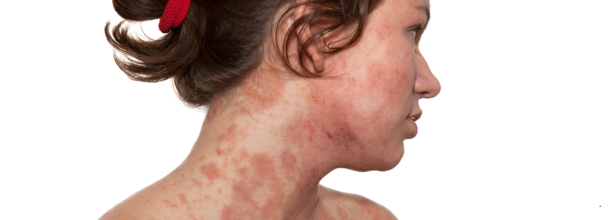- Health Conditions A-Z
- Health & Wellness
- Nutrition
- Fitness
- Health News
- Ayurveda
- Videos
- Medicine A-Z
- Parenting
- Web Stories
Poor Dental Health Could Be Linked To Chronic Health Condition

Our parents always ensure that we learned the importance of dental hygiene. Being taught from a young age, most of us are aware of how a lack of oral hygiene not only makes us sick but can make a bad impression of us on others. However, there may be a lot more to oral hygiene than we know.
A new study suggests that poor dental health might be an early sign of serious long-term health problems like type 2 diabetes and heart disease. Researchers recently reported in the Journal of Oral Rehabilitation that people with signs of unhealthy mouths—such as missing teeth or a coated tongue—were also more likely to have high blood sugar, high cholesterol, and reduced kidney function.
What the Study Examined
For the study, researchers followed 118 men and women aged 50 or older. They compared dental exam results from 2021 with physical exam results from both 2021 and 2023. The dental exams checked several aspects of oral health, including:
- Tongue coating: How much buildup was on the tongue.
- Mouth dryness: The level of moisture in the mouth.
- Number of functional teeth: How many healthy teeth remained.
- Tongue pressure: The strength of the tongue.
- Chewing and swallowing ability: How well a person could perform these actions.
- Oral Diadochokinesis (OD): A test measuring how quickly and accurately someone can repeat syllables (like "pa-ta-ka").
Oral-Systemic Connection
The study discovered clear links between a person's mouth health and their overall body health. People with high blood sugar often had fewer teeth left and struggled more with the speech clarity test. This suggests a link between diabetes risk and losing teeth or having weaker mouth muscles
Those with high cholesterol frequently had a coated tongue and also performed poorly on the speech clarity test. This points to a surprising connection between fat levels in the blood and certain mouth signs. Individuals with reduced kidney function showed signs like a coated tongue, fewer healthy teeth, and poorer scores on the speech clarity test. This indicates that kidney problems might show up in mouth health. These results suggest that a decline in how well your mouth works might increase your risk for lifestyle-related diseases and make you more likely to become frail as you age.
Why the Link? Possible Explanations
Scientists believe this connection could be due to unhealthy bacteria that grow when the mouth isn't well cared for, or because of inflammation (swelling and irritation) found in diseased gums and teeth. These problems in the mouth might then affect other parts of the body, leading to broader health issues.
It’s important to remember that this study only observed a link; it doesn't directly prove that poor dental health causes these other illnesses. It's also possible that having chronic diseases might make it harder to maintain good oral health.
What You Can Do Now
More research with a larger number of people is needed to fully understand how mouth health and long-term diseases are connected.
In the meantime, experts suggest it wouldn't hurt to include simple checks like counting teeth and doing speech clarity tests during regular doctor visits. These simple checks could potentially give early clues about hidden health problems. Keeping your mouth healthy is always a smart step for your overall well-being.
BPA in Lipsticks? Doctor Shares How Your Makeup Bag Could Be Full Of Endocrine Disruptors

For many, swiping a bold red or a soft pink might just be about putting on some makeup and heading out. But have you ever stopped to think about what else you are putting on your lips? Your favourite lipstick could be a silent killer, interfering with your hormones, cycles, and even fertility. And it all comes down to one banned ingredient, that is, Bisphenol A, or BPA. It is known as an endocrine disruptor that might be making its way into your makeup kit.
BPA has been around since the 1960s and is widely known for its use in plastic bottles, canned food linings, and even cosmetic containers. Though it was officially banned in makeup formulations in 2006, loopholes and lack of strict regulation mean some low-cost products still manage to include it either in their formula or packaging.
“Some cheap cosmetic products could be loaded with BPA,” warns Dr Vishal Gabale, an internal medicine specialist. “BPA is a powerful endocrine disruptor which is found in plastic packaging and unregulated cosmetics.”
How BPA Wreaks Hormonal Havoc
BPA behaves like an impostor. It mimics oestrogen and binds to the body’s oestrogen receptors, sending mixed signals to your hormonal system. “BPA mimics oestrogen; therefore, it binds to oestrogen receptors and confuses the hypothalamus and urinary system,” says Dr Gabale in a post shared on Instagram. “This shuts down the normal HPO axis, blocks ovulation, alters menstrual cycles and can even trigger symptoms like PCOS," he adds.
Yes, your favourite nude gloss or budget compact could be doing more than giving you a glow. It might be playing tricks on your body’s most delicate hormonal functions.
From Your Lips to Your Hormones: The Health Dangers of BPA
The problem is not just about your makeup routine. BPA exposure has been linked to a host of long-term health risks:
- Hormonal Disruption: By mimicking oestrogen, BPA confuses your endocrine system, leading to imbalances that affect mood, metabolism, and reproduction.
- Fertility Issues: BPA exposure has been shown to reduce fertility in both men and women.
- Higher Cancer Risk: Hormone-dependent cancers, especially breast and prostate cancers, have been linked to elevated BPA levels.
- Heart Health at Risk: Some studies have found a correlation between BPA exposure and increased risk of cardiovascular disease.
- Child Development Concerns: Pregnant women exposed to BPA may risk their baby’s behavioural and cognitive development.
BPA is Not Just in Food Packaging
BPA may be infamous for leaching into canned beans or plastic water bottles, but it also lurks in your beauty routine. Containers used for lipsticks, foundation tubes, and skincare jars may contain BPA, especially if they are made from certain plastics or exposed to heat during storage or travel.
Even if the product itself is free of BPA, storing it in containers that contain the chemical can allow BPA to seep in, especially when exposed to high temperatures.
How to Dodge BPA in Your Makeup Routine
- Read the Label: Look for cosmetics clearly marked as BPA-free and paraben-free.
- Avoid Plastic #7: This category often includes BPA. Steer clear of products packaged in these plastics.
- Store Smart: Keep your cosmetics in cool, dry places. Heat can increase the rate at which BPA seeps into the formula.
- Switch to Safer Packaging: Go for glass or stainless steel containers whenever possible.
- Research Before You Buy: Eco-conscious labels openly advertise BPA-free packaging.
A Common Medication That Leaves You Trapped 'In Your Own Half-Alive Corpse' Condition

Credits: Canva
Imagine applying a cream to soothe your itchy, irritated skin, only to later find yourself bedridden, burning from the inside out, with no end in sight. This is the haunting reality of Topical Steroid Withdrawal (TSW), a devastating condition that some people develop after stopping common steroid creams used to treat eczema and other skin conditions.
Topical corticosteroids are widely prescribed. They’re found in medicine cabinets around the world and are often recommended by doctors as a first line of defense against inflammation. But for some, particularly those who’ve used them for years, the consequences of withdrawal are nothing short of horrifying.
“Like Pouring Boiling Water Over My Skin”
Kelly Barta, reports The New York Post, was just 38 when she decided to stop using the topical steroid creams she had relied on since childhood. Diagnosed with eczema as a young girl, she began using hydrocortisone and gradually moved to stronger prescriptions as her condition worsened.
By adulthood, Barta was using one of the most potent steroid creams on the market.
“When I quit, it felt like someone poured boiling water over my whole body,” she recalled. Her entire body turned red and itchy. She couldn’t sleep. The burning sensation never stopped—for five long years.
Her life unraveled. She lost her job, her marriage, her hair, and nearly her life. “You’re imprisoned in this body with unrelenting pain,” she said. “Don’t try to get to tomorrow—just survive the next hour.”
Her case is not unique.
According to the International Topical Steroid Awareness Network (ITSAN), TSW can leave sufferers housebound or bedridden for months or years. Symptoms include extreme redness, relentless itching, nerve pain, and “oozing” skin. Many describe it as being “trapped in your own half-alive corpse.”
Misunderstood and Misdiagnosed
Though eczema affects around 31 million Americans, most are unaware of TSW. Doctors, too, often misdiagnose the condition as a worsening of eczema, and the standard recommendation is more steroids—further fueling the cycle.
“I was getting to the point where I’d reach into my purse and come out with hives,” Barta said. Her general practitioner dismissed her concerns, suggesting lifelong steroid use. But a pharmacy technician warned her she might be overusing the medication.
No one had ever explained that long-term use could make her skin thinner, more reactive, and vulnerable to new allergies. Barta’s own research revealed the disturbing truth—that what was supposed to help her had actually been harming her.
A Shared Battle
Jada Jones, now 23, tells the Post that she was also diagnosed with eczema as a child. When a dermatologist prescribed her mid-strength steroids, her skin improved quickly. Encouraged, she continued using them on and off—until high school stress triggered a flare-up.
Jones asked her doctor about TSW, but was reassured it wasn’t a risk. Instead, she was bumped up to the strongest Class 1 steroids.
Her condition worsened in 2022 while pursuing a creative career in Los Angeles. “It looked like purplish bruising. Not eczema,” she said. A scheduled photo shoot had to be abandoned midway. “I was bedridden from that day on for the next four months.”
Her body was on fire, her skin cracked, and pain consumed every waking moment. “They’re looking at you like you’re damn near a burn victim,” she said of her baffled doctors.
Healing in Unconventional Places
With traditional medicine offering little support, Jones took matters into her own hands. She moved to Tulum, Mexico, to try healing saltwater and later traveled to Thailand for Cold Atmospheric Plasma (CAP) therapy—a lesser-known treatment that has shown promise for TSW.
While she still battles symptoms, her condition has improved. Today, she manages her skin using infrared and red-light therapy.
“My skin has very mild eczema symptoms now,” she said. “I’d rather tolerate this for the rest of my life than ever go through that again.”
The Medical Mystery of TSW
Despite its severity, Topical Steroid Withdrawal Syndrome remains under-researched and poorly understood. There is no official diagnostic criteria, no universally accepted treatment, and many doctors still dispute its existence.
Patients are left to advocate for themselves, rely on online support groups, and explore alternative treatments. ITSAN continues to push for awareness and research funding.
Both Barta and Jones believe education is key. Steroids can help—but only if used sparingly and for short periods. “You think you’re getting help,” Barta said, “but then you end up 100 times worse than you were before.”
Is Protein The Anti-Hero For Ozempic Muscle Loss?

(Credit-Canva)
As Ozempic and other weight loss drugs become popular what many fail to understand is that the original purpose of Ozempic, focusing on the superficial benefit of the medicine. However, there are many other aspects of the medication. People are slowly learning about other factors of this drug like ‘Ozempic Feet’, or ‘Ozempic face’, as the understanding that along with weight loss a person who takes Ozempic may come across these symptoms as well. To understand what the other nuances of the vaccine are and how to ensure the health of people who take it, researchers have looked into what the diet of a person who has received the medication should be.
A new study suggests that eating less protein might lead to more muscle loss for people taking weight loss drugs like Ozempic. This finding, presented at the ENDO 2025 conference, points to how important diet is for keeping your muscles healthy when you're losing weight quickly.
When you lose weight fast, no matter how you do it, you usually lose some muscle along with fat. Losing muscle can be risky, especially for older people or those who already have weak bones, as it can increase the chance of falls and broken bones. It can also make it harder for your body to control your blood sugar.
For people using newer weight loss medicines called GLP-1 receptor agonists (like Ozempic), researchers found that what you eat might be even more important for protecting your muscles.
For the study, 23 people were given semaglutide (the main ingredient in Ozempic), and the other 17 tried to lose weight through diet and lifestyle changes. After three months, the semaglutide group lost more weight (6.3%) than the diet and lifestyle group (2.5%). Both groups lost about the same amount of muscle. In the semaglutide group, older people, women, and those who ate less protein at the start of the study tended to lose the most muscle. More muscle loss in this group was also linked to less improvement in blood sugar levels.
Experts explained that the study wasn't a perfect experiment, it suggests that eating more protein seemed to help prevent muscle loss in those taking semaglutide.
Ways You Can Reduce Muscle Loss While On GLP-1 Drugs
Even though this study didn't prove that protein stops muscle loss, we already know that protein is very important for muscle health.
Eat Enough Protein
The British Heart Foundation recommends that his patients eat about 0.75 grams of protein for every kilogram of their body weight. This means eating roughly 45 grams for women to 55 grams for men each day.
Good Foods for Protein
You can find a lot of protein in seafood, lean meats, chicken, eggs, beans, peas, lentils, soy products, nuts, and seeds. Remember that you also need a balanced diet with fats, carbohydrates, and fiber.
Do Muscle-Building Exercises
Experts also suggest doing resistance training, like push-ups, squats, or lifting weights. A study from 2021 showed that for people taking another GLP-1 drug called liraglutide, resistance training helped them keep their muscle mass.
It is stressed that just taking medicine for weight loss without also being active and eating smart can put people at risk for problems like falls and broken bones.
Some people taking GLP-1 drugs might feel sick or not have much of an appetite, which can make it hard to exercise or eat enough protein. It is suggested that one must talk to their doctor about finding a dose that has fewer side effects.
© 2024 Bennett, Coleman & Company Limited

